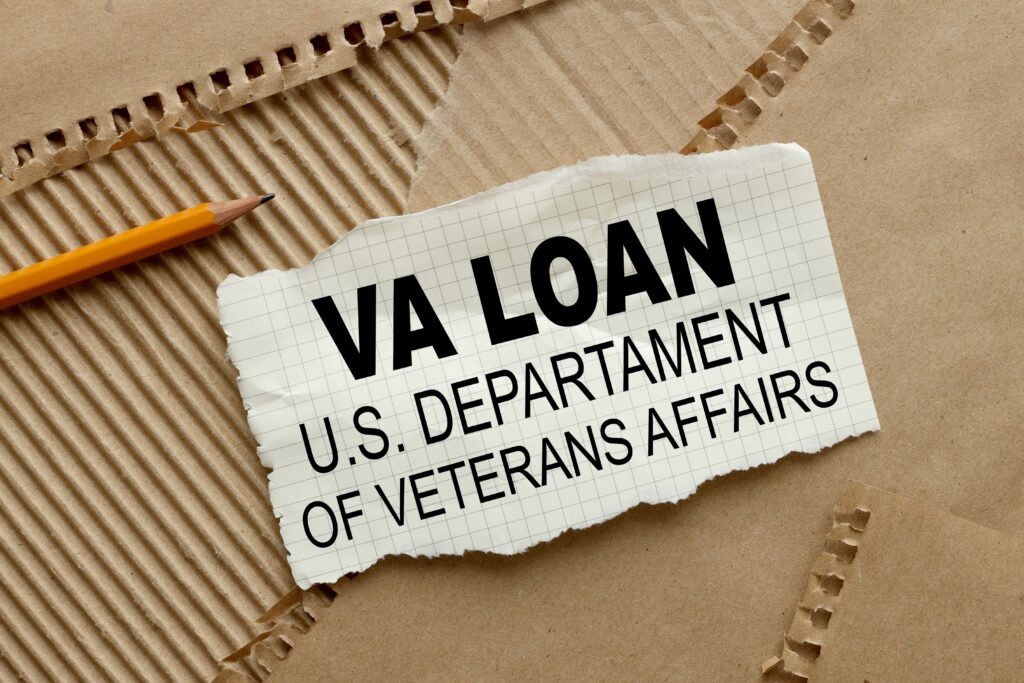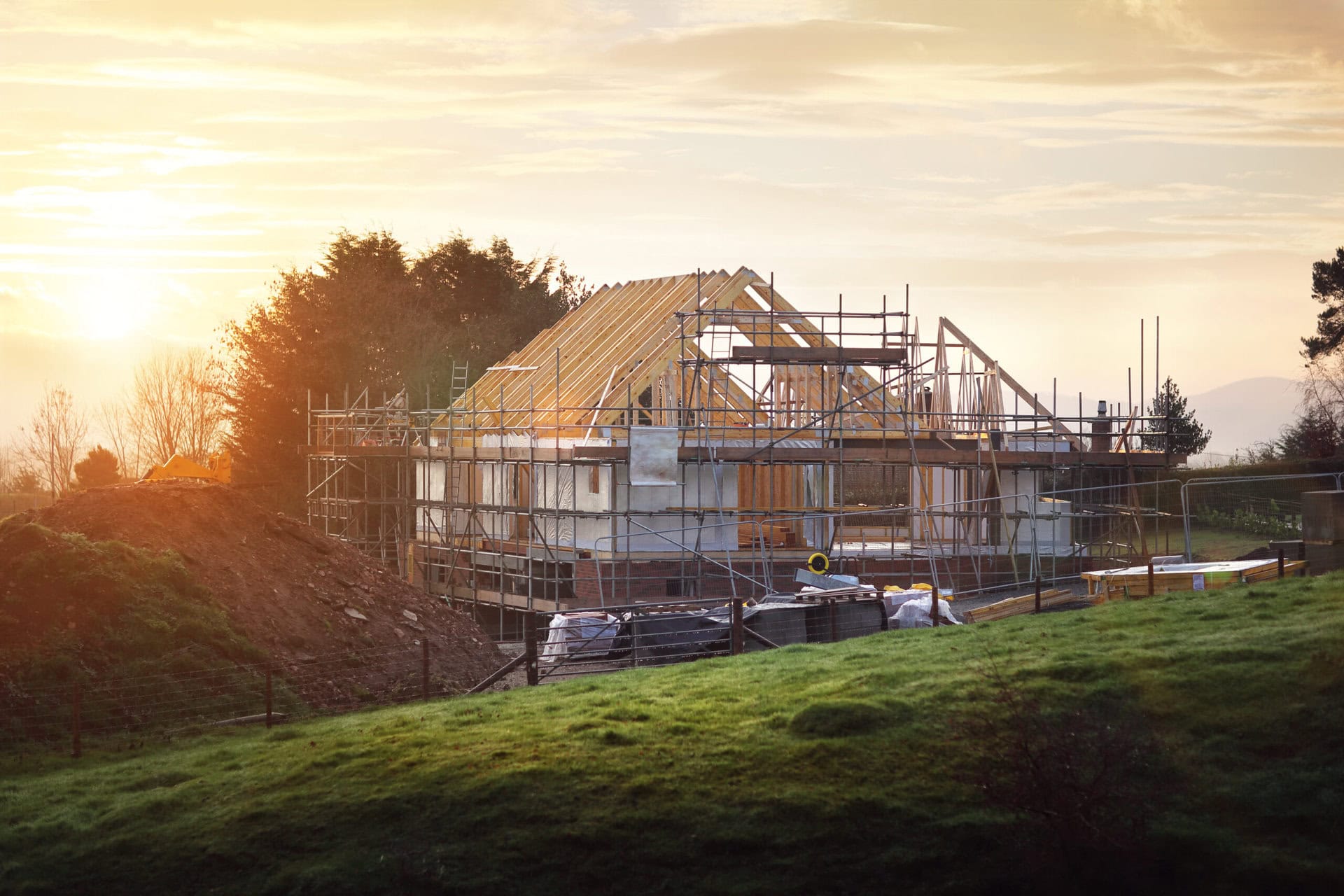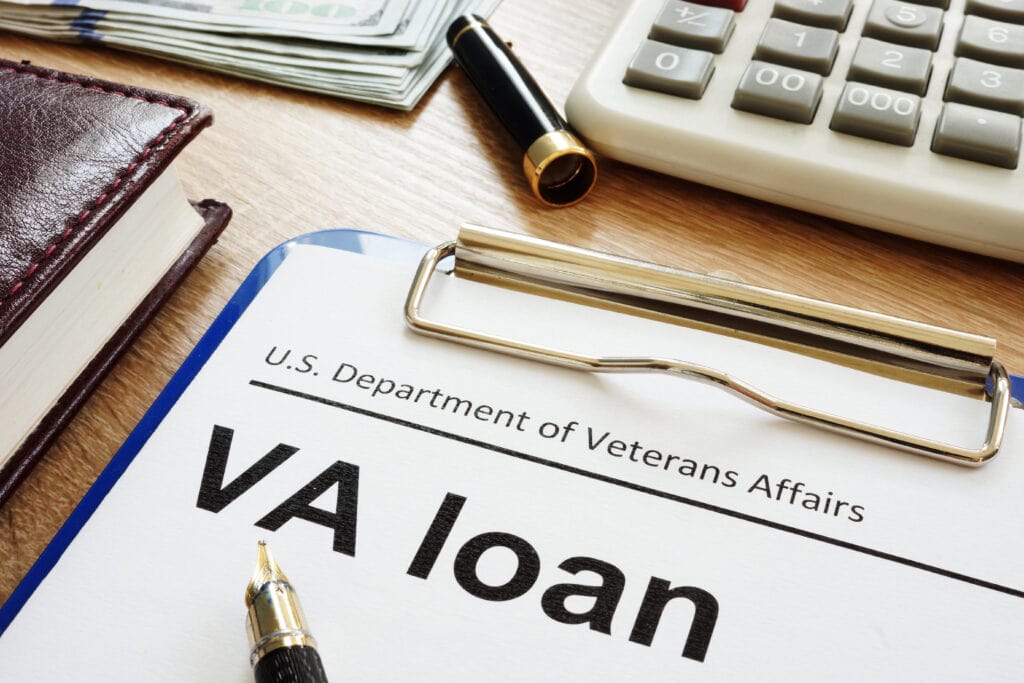The full list of VA loan minimum property requirements can be found in VA Pamphlet 26-7, Chapter 12: Minimum Property Requirements.
Generally, property requirements for a VA loan encompass various safety items, including but not limited to:
- Property is residential (not commercial)
- Property is accessible year-round
- Sufficient living space
- Accessible attic and crawlspace
- Working electricity
- No exposed wiring
- Functional heating and air conditioning systems
- Adequate roofing
- No evidence of termites, dry rot, or fungus growth
- Proper water and sanitation
- Effective drainage and water damage protection
- Mold free walls
- No lead-based paint (remediation required if present)
Table of Contents
Why are there VA Loan Minimum Property Requirements?

The VA loan program is intended to facilitate veteran homeownership not real estate investing.
To ensure habitability, the VA has established certain requirements that must be met for a property to qualify for a VA loan.
As part of the loan approval process, a VA-assigned professional appraiser conducts an appraisal and inspection of the property.
The appraiser evaluates the property’s value and assesses whether it meets the minimum property requirements set by the VA.
These requirements aim to safeguard the interests of veterans, lenders, servicers, and the VA itself.
After the appraisal, the VA reviews the appraisal report in its entirety.
If any issues violating the minimum property requirements are identified, borrowers can request the seller to address them.
However, if the seller refuses, the borrower may need to walk away from the deal.
What are the VA Minimum Property Requirements?

Buyers and sellers should be aware of common issues related to VA minimum property standards to help avoid complications during the closing process.
Here’s a detailed list of VA loan property requirements:
Residential Property Requirement (Not Commercial)
The property you are considering for a VA loan must be a residential property, not a commercial one. While the VA does allow properties with partial business use, the primary purpose of the property must be residential. Additionally, the property should be zoned for residential use and comply with local zoning regulations. It can be a single-family home, modular home, or mobile home, and it must serve as your primary residence.
Property Accessibility Year-Round
The VA places importance on the accessibility of your property as part of its Minimum Property Requirements (MPRs). It is required that your property has safe and convenient access for both vehicles and pedestrians. This means having a driveway or sidewalk that connects to a road with an all-weather surface. A dirt road may not meet the VA’s accessibility standards. Additionally, if your property includes a backyard, it should have a separate access point that does not require crossing over another property.
Adequate Living Space
When it comes to VA home loan eligibility, it is essential that your property provides sufficient living space to meet the requirements. This includes designated areas for sleeping, cooking, using the restroom, and general living activities. While the VA does not set a specific minimum area requirement for a home, it does emphasize the need for adequate facilities and a suitable living area that ensures a safe and comfortable living environment.
Accessible Attic and Crawlspace
While a VA appraiser may not extensively explore the attic or crawlspace, it is necessary to provide them with access to these areas. It is important to have a small access door in both the attic and crawlspace to allow the appraiser to make a brief inspection and capture some photographs. If the home lacks proper access to either of these spaces, the VA will likely require the issue to be resolved before granting approval for your mortgage. Ensuring accessibility to the attic and crawlspace is crucial to meet the VA’s requirements.
Working Electricity
To meet the VA’s Minimum Property Requirements (MPRs), the property you’re considering must have safe and functional electricity. The electrical system should be adequate to power essential appliances and provide proper lighting. The appraiser is not obligated to test appliances or lighting, but if any wiring is known to be non-functional or unsafe, you or the seller may need to repair it before the VA approves the loan.
No Exposed Wiring
The VA does not approve loans for homes that have exposed wiring or unsafe electrical system features. The property should also comply with local building codes, which may require the presence of test and reset buttons on GFCI outlets or an upgraded circuit breaker from a fuse box. Any frayed or visible wiring should be repaired, regardless of the property’s location.
Functional Heating and Air Conditioning Systems
An appraiser will assess the heating and cooling system in the property, particularly in areas with plumbing. The heating system must be capable of maintaining a temperature of at least 50 degrees in plumbing areas. Additionally, the cooling system should be in good working condition and free from any unsafe or unsanitary features. The VA may approve solar heating and cooling systems if there is a backup heating and cooling system available.
Adequate Roofing
The roof of a home is considered a crucial aspect by appraisers. The VA considers the roof an important item on its MPR list. The roof should not have any current leaks or issues that could lead to leaks, and it should have several reliable years of remaining life. If the home has at least three layers of old shingles requiring repair, the VA may require the removal of the old shingles.
Termite and Pest-Free Structure
Termites and other pests can significantly impact a property’s eligibility for VA financing. Evidence of termites is considered a defective condition affecting the safety and sanitation of the property. Appraisal reports also include a section on wood-destroying insects, rot, or fungus. Some VA appraisals may necessitate a separate pest or termite inspection if the appraiser notices potential evidence of pests. Properties in areas with a moderate to heavy termite infestation probability may require a termite inspection for VA approval.
Proper Water and Sanitation
Beyond running water, a VA loan approval requires the availability of safe drinking water, hot water, and a continuous supply of running water for toilets, sinks, baths/showers, and drinking purposes. Bathrooms should also be in a sanitary condition. The property must have a safe method of sewage disposal, either through an individual water supply and sewage system or proper connection to the city’s water and sewage system.
Effective Drainage and Water Damage Prevention
A crucial aspect of meeting the VA’s loan requirements is ensuring that your home has proper drainage to prevent water damage. This includes adequate functioning of gutters, downspouts, drain pipes, and other features designed to direct water away from the foundation. The presence of pooling water in or around the house can be a red flag and may lead to a loan denial from the VA and the VA lender. Taking measures to maintain effective drainage and prevent water damage is essential for VA loan eligibility.
Mold Free Walls
Visible mold on walls, floors, or other areas of the property is a significant concern for VA loan approval. Appraisers will also check for any leaks or potential water leakage that could cause mold, including in the attic, basement, or crawlspace. Mold can lead to wood rot, creating an unsafe structure, and pose health risks.
No Lead Based Paint
To meet the requirements for a VA loan, it is crucial that the property is free from lead-based paint. The presence of lead-based paint poses significant health risks, including memory loss, gastrointestinal problems, heart conditions, and kidney issues. If the appraiser identifies the presence of lead paint in the home you plan to purchase, it will be documented in the appraisal report. Subsequently, the VA will require you to eliminate the lead paint and repaint the home, unless the level of lead paint is determined to be below the permissible limit set by the law. Ensuring that the property is free from lead-based paint is an important step in meeting the VA’s loan requirements.
Conclusion and Next Steps
It is crucial to select properties that meet the VA’s minimum property requirements to avoid unnecessary expenses and delays during the contract process.
However, navigating these standards can be complex and confusing.
To ensure a smooth experience, we recommend seeking the assistance of a knowledgeable real estate agent who is well-versed in VA loans and their associated requirements.
An experienced VA loan agent can effectively identify potential issues in properties before you make an offer, ultimately saving you the disappointment, time, and financial resources associated with signing a contract on a home that fails to meet the VA’s standards.
Remember, having a trusted professional by your side can provide valuable guidance throughout the home-buying journey and help you make informed decisions that align with your VA loan eligibility.
Want to Use Your VA Loan Benefits?

You’ve got VA home loan questions.
We’ve got expert answers!
If you’re thinking about a purchase or refinance mortgage using your VA home loan benefits, or if you have questions about getting the best interest rate, obtaining jumbo loan financing, or any other questions about what loan products you may qualify for, you can get in touch with us HERE.
>> Click HERE to get a great low mortgage rate in 60 seconds or less!
About the Author

Brian Reese is a senior advisor and co-owner at District Lending. He is one of the world’s leading experts in veteran benefits, having helped millions of veterans secure their financial future since 2013. Brian is the founder VA Claims Insider, an education-based Coaching & Consulting company whose mission is to educate and empower veterans to get the VA disability benefits they’ve earned for their honorable service. A former active-duty air force officer, Brian deployed to Afghanistan in support of Operation Enduring Freedom. He is a distinguished graduate of management of the United States Air Force Academy and earned his MBA as a National Honor Scholar from the Spears School of Business at Oklahoma State University.
In Brian’s Own Words:
“As a military veteran, I’ve made it my life’s mission to help people live happier and wealthier lives. District Lending brings this mission to life. We believe in integrity, honesty, and transparency, which is why you’ll see our rates right on our website. You’ll find lower rates and zero lending fees, which means you can buy your dream home for less. The savings are passed on to you — the way it should be.”
– Brian Reese, Advisor and Co-Owner, District Lending






